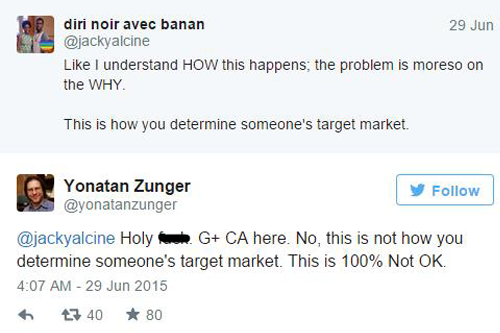Research from Populus and Reputation.com (presented at the recent Trust and Reputation conference in London) shows that 64% of people in the UK think that big business will rip people off, if given the opportunity. Perhaps because of that, 71% of people think that big business should be more closely regulated by government. 68% of the public would support a government-imposed maximum wage (of no more than 10 times the average staff wage). 75% support capping bonuses at 50% of salary.
51% of British adults believe that big businesses in the UK prioritise investors (and giving investors a return on their money) over providing the service people need. Paying tax comes pretty low down on the list.
A reduction in trust should worry anyone in business. Increased demand for a more heavily regulated business environment can only have a negative impact on our economy, making the UK a less inviting location for business, and putting off potential investors.
It is not surprising, though. In the wake of so many scandals – from LIBOR fixing to numerous tax avoidance schemes – and in an environment of austerity, people feel business is getting away without doing its share.
This feeling that corporate = bad is spreading to the third sector. Sir Brendon Gormley (until recently CEO of the DEC), says that the newest threat to NGOs and charities is a perception that they are becoming too corporate, and losing their values. Salaries and money spent on good management are seen as a bad thing, rather than a good thing.
That’s not to say companies shouldn’t make money. Simon Walker, Director General of the Institute of Directors, summed it up nicely by quoting Theodore Roosevelt: “We draw the line against misconduct, not against wealth.”
It can be a fine line to walk between what’s right, and what’s legal. As Margaret Hodge said in her select committee grilling of Google on the issue of tax avoidance: “We’re not accusing you of being illegal, we’re accusing you of being immoral.” Perhaps morality will become more important if it has an impact on trust, and on reputation, and that in turn translates to profit.
A number of speakers at the Trust and Reputation conference talked about their belief that behaving responsibly will gain trust and build reputation, which in turn has a positive impact on the bottom line.
Nigel Knowles, Global Co-Chairman of DLA Piper, said that “Companies who take genuine action to change [disreputable] practices and rehabilitate their reputation will gain market share.” That means taking action. As Mark Pendlington, Group Director at Anglian Water, said: “We need to rid industry of the few bad apples, stand up and inspire people to take action.”
And once there’s been action, business needs to communicate that action: why success matters not just for the individual company, but for us all.






